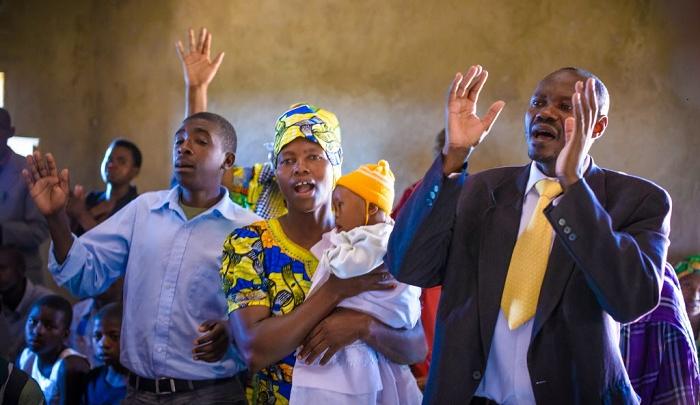
KIGALI, Rwanda (April 7, 2014) – Today World Vision joins the rest of the nation of Rwanda and the world in commemorating the twentieth anniversary of the Rwanda genocide.
The government of Rwanda has set this day aside as a stark reminder of lives lost, an opportunity to show solidarity with survivors and foster unity that ensures such an event never recurs again. It is also intended to present a chance for sharing lessons learnt on Rwanda’s story of reconciliation and nation building.
“This is a day all Rwandans look on with great sadness, remembering those killed and the deep and lasting impact on the entire country. It’s a day we mourn the generation of children lost or made orphans by the violence,” said World Vision’s National Director in Rwanda, George Gitau. “However, in the coming weeks, we can also turn to see stories of hope — peace and forgiveness that have come following this terrible tragedy.”
Two decades ago, World Vision released globally photographs and video footage that helped expose the story of what was then happening in Rwanda. The world was shocked at the death of more than 800,000 citizens, most of them vulnerable women and children.
In tandem with the solemn history of the event, Rwanda’s government has decreed next Monday (April 7) as a day that will not be observed with any pomp and glamour. Instead the nation is expected to mourn as they remember the dark history when the hundreds of thousands of people died.
As the genocide anniversary is commemorated, offices (including World Vision) open half day. Social places such as clubs will remain closed. No weddings nor celebrations will be held. A symbolic burning torch is being delivered to all major towns.
“World Vision Rwanda was established in 1994 during the genocide. It initially offered emergency response and psycho social support, but also played a key role in recovery and rehabilitation of this great nation,” Gitau said.
World Vision continues its development work, directly serving an estimated 2.5 million children and their families with life-saving interventions. However, also of crucial importance is the peace building efforts that continue to this day. World Vision was one of the first non-profit organizations to include peace building in all of its relief and development work following the genocide. The organization continues to facilitate reconciliation groups to this day where survivors and victims in communities come together to talk and seek forgiveness in a process facilitated by counselors and clergy. It’s a model the government of Rwanda has also used throughout the country.
“In our peace building groups we’ve seen what some would think of as an impossible level of forgiveness and grace — genocide survivors and the perpetrators who committed crimes against them and their family move from anger and grief to friendship. We’ve seen members of what were once different tribes come together as one, some even building a new life together. It’s that message and example that so many nations in the world desperately need today,” said Josephine Munyeli, World Vision’s peace and reconciliation expert in Rwanda.
The anniversary of the Rwandan genocide comes as many countries around the world remain in bitter conflict within their borders, including South Sudan, the Central African Republic, the Democratic Republic of Congo, and Syria.
– END –
About World Vision:
World Vision is a Christian humanitarian organization conducting relief, development, and advocacy activities in its work with children, families, and their communities in nearly 100 countries to help them reach their full potential by tackling the causes of poverty and injustice. World Vision serves all people regardless of religion, race, ethnicity, or gender. For more information, please visit www.WorldVision.org/media-center/ or on Twitter @WorldVisionUSA.
Highlights
- Country takes time for somber remembrance, mourning
- World Vision provided some of first footage alerting world to extent of the violence
- World Vision continues reconciliation groups, peacebuilding efforts still underway in many communities